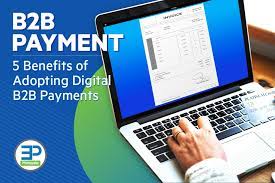BUSINESS

HOW SEAMLESS PAYMENTS CAN UNLOCK AFRICA’S TRADE DREAM UNDER AFCFTA
Africa’s Big Trade Moment Is Here — But Can Payments Keep Up?
Africa is one of the world’s fastest-growing regions, rich in natural resources and home to over a billion people eager to trade, build, and innovate. Yet, for decades, trade across the continent has been slow, fragmented, and weighed down by inefficiency.
It’s almost ironic — a continent exporting billions in raw materials to Europe and Asia still struggles to trade easily within itself. The reasons run deep: weak infrastructure, high tariffs, and—perhaps most crucially—inefficient payment systems that make cross-border business complicated.
That’s what the African Continental Free Trade Area (AfCFTA) set out to change. Signed by 54 countries and launched in 2021, the AfCFTA aims to create a single African market—freeing up the movement of goods, services, and capital, while slashing tariffs on most products. In simple terms, it’s Africa’s boldest attempt yet to trade with itself, grow its economies, and create millions of jobs.
If it works as planned, the AfCFTA could lift over 30 million people out of extreme poverty by 2035 and turn Africa into a global trade powerhouse. But there’s one major hitch: you can’t have smooth trade without smooth payments.
The B2B Payment Problem No One Can Ignore
Picture this: A Nigerian business owner wants to pay a supplier in South Africa. Ideally, that should be a simple transfer between two African banks. But in reality, the money often travels halfway around the world first — through the SWIFT network or correspondent banks in Europe or the U.S.
The process can take days, cost hefty fees, and drain small businesses of time and resources. Big corporations might absorb these costs, but for SMEs—the backbone of Africa’s economy—this is a dealbreaker.
These payment delays and high transaction costs make it tough for African businesses to grow, connect, and compete. Instead of building supply chains within Africa, many end up looking overseas for partners who can offer easier payment solutions.
The result? Stifled trade, fragmented liquidity, and missed opportunities.
Fintechs and PAPSS: Changing the Game
Thankfully, the story is beginning to change. Over the last decade, African fintechs have stepped up to build faster, cheaper, and more inclusive payment systems—systems that actually work for Africans.
These innovators are rewriting the playbook. From mobile wallets to blockchain-based settlements, fintechs are simplifying how businesses send and receive money across borders.
One standout example is Ledig, a fintech company using stablecoins (digital currencies pegged to the dollar or local currency) to enable seamless cross-border payments and remittances across Africa and other emerging markets. Stablecoins eliminate the long chains of intermediaries and make transactions faster, transparent, and less expensive.
At the same time, the Pan-African Payment and Settlement System (PAPSS)—a collaboration led by the African Union and Afreximbank—is offering a government-backed infrastructure that allows African countries to settle trade payments in their local currencies.
Together, fintech innovation and PAPSS are creating the perfect foundation for the AfCFTA dream: a continent trading freely, efficiently, and on its own terms.
Beyond Payments: What Must Come Next
Payments may be the heartbeat of trade, but they’re only part of the bigger picture. For Africa to fully realise the AfCFTA’s potential, policymakers must go further—streamlining customs processes, logistics, and transportation networks.
Imagine faster cargo clearances, harmonised tariffs, and reliable rail and road systems connecting Lagos to Nairobi, or Accra to Johannesburg. That’s when intra-African trade truly becomes effortless.
With stronger financial infrastructure, smarter policies, and continued innovation, Africa’s $29 trillion economic projection by 2050 may no longer be just a dream—it could be our shared reality.
"This represents a significant development in our ongoing coverage of current events."— Editorial Board









